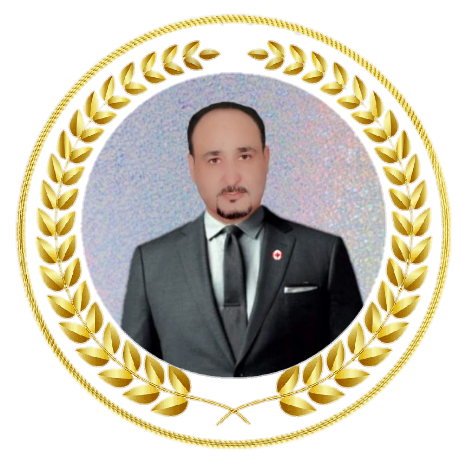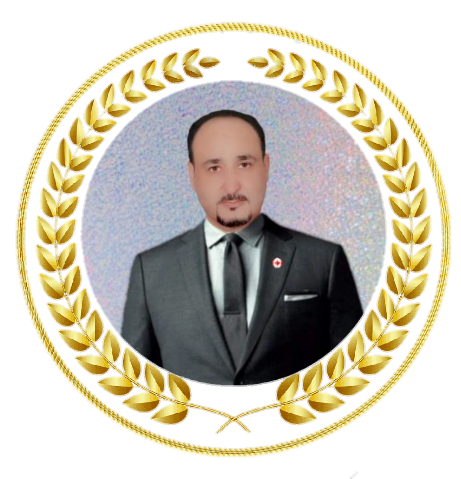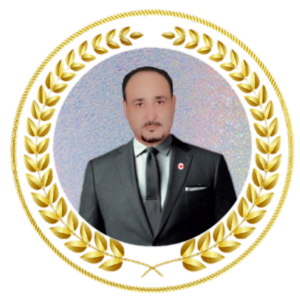About And The Story of Hany Khater: From Journalist to Victim of Repression
Early Life and Transition to Journalism
I was born Hany Khater on March 22 in Helwan, south of Cairo. I grew up in a family home as the youngest son among three siblings, where reading and writing were an integral part of my daily life. I was influenced by my grandparents’ stories about Egyptian revolutionaries, which instilled in me a love of knowledge and a passion for humanitarian and social issues. I completed my studies and earned a doctorate in tourism and hotels, working in this field for four years, but my heart yearned for writing.
In 2000, I transitioned to the world of journalism. I enrolled in the Faculty of Mass Communication, and after significant effort, I obtained a bachelor’s degree in journalism in 2003. During that time, I studied under prominent Egyptian journalists, such as the late esteemed journalist Mr. Nagy Hekal and the journalist and media figure Mr. Jabir Al-Mahdi, who influenced me and contributed to shaping my professional orientation. I was particularly interested in investigative journalism, and I was able to distinguish myself through reports that addressed sensitive and bold topics related to corruption and abuses in Egyptian society.
Experience in Morocco and Participation in the Revolution
In 2009, I traveled to Morocco as part of my dream to expand my media horizons. There, I founded a media institution and the newspaper “Waraa Al-Ahdath” in the city of Tangier. The newspaper aimed to provide comprehensive coverage of events in Morocco and the Arab world. Thanks to my hard work, I became a well-known figure in media circles.
Three months before the January 25, 2011, revolution in Egypt, I decided to return to my country to participate in the revolution. I was an active and prominent figure in the popular movement, contributing to organizing demonstrations and disseminating news about critical events. Despite my courage and significant contributions, I did not gain the media fame that others received, as I preferred to work behind the scenes.
Arrest and Repressive Pressures
With the arrival of 2016, everything in my life changed drastically. On February 12, 2016, I was arrested by the Moroccan police while in Casablanca, where I was charged with several complex allegations, including forgery of official documents, impersonation, and illegal residency. These charges were considered fabricated, aimed at suppressing my voice as a journalist.
Despite my innocence, I was denied access to a lawyer at any stage of the trial, including the appeal, and I was sentenced to three months in prison at Ain Sebaa Prison in Casablanca. There, I was subjected to severe repressive measures, forced to spend my time in a cell no larger than 10 square meters with more than 50 detainees, amidst inhumane conditions. Life in prison was harsh, as I was deprived of good food and rest and subjected to psychological torture.
Before my sentence ended, I was informed of an international arrest warrant issued by the Egyptian government, and I was transferred to Salé 1 Prison. During that time, violations against me continued, as I was placed in solitary confinement, exacerbating my suffering. I was led to believe that I had a heart condition, and the prison institution provided me with heart medication without my knowledge that this was an attempt to kill me.
In one phone call with a person from the Moroccan Ministry of Justice, Abdul Ali Hamid Al-Din, a prominent figure in the ruling party and considered the Deputy Minister of Justice, informed me that I had only two options: either face security deportation to Egypt, leading to the end of my life and journalistic future, tarnishing my name, or exit to the grave.
Abuse and Medical Neglect
On September 6, 2017, I was arbitrarily transferred to Tiflet 2 Prison, known for housing long-term sentences and terrorism cases. I was isolated from the outside world and deprived of all my basic rights. There, I suffered from malnutrition, and expired medications were provided to me, which the guards claimed were for treating heart disease, a condition I did not have.
I continued to face acts of torture, including humiliating treatment and attempts to beat me. Under these harsh conditions, I sustained serious injuries that led to permanent disabilities. After my release, I underwent surgeries on my spine, where a disc was removed and vertebrae were stabilized with metal screws. I underwent repeated surgeries to address the effects of torture and medical neglect.
Health Deterioration and Ongoing Persecution
My suffering did not end with my release on March 20, 2020. I experienced several health issues, including artery narrowing, which necessitated the placement of a stent in my coronary artery. Additionally, I was diagnosed with muscular sclerosis, which I only discovered through tests at Sherbrooke hospitals, a serious condition affecting the nerves and muscles, making me susceptible to loss of movement and speech over time.
Harassment continued even after my release from prison, as I was subjected to theft of my documents and money from my home. When I reported this to the police, no action was taken, even after I provided evidence of the thief’s identity and location.
Events unfolded until the United Nations High Commissioner for Refugees took over the matter. In collaboration with the Canadian Embassy in Rabat and the International Organization for Migration, I was transferred to Canada on July 27, 2022. Since then, I have been unable to work or study due to numerous illnesses and medical appointments in an attempt to manage the effects of the repression and neglect by the Moroccan authorities and attempts on my life.
Conclusion
My story is not just an individual tale; it represents the tragedy faced by many journalists and activists in the Arab world. It illustrates the challenges faced by those who strive to disseminate the truth and how authorities can resort to repression and intimidation to silence dissenting voices. My experience remains a symbol of hope and change, affirming the importance of continuing to strive for justice and human rights everywhere.



